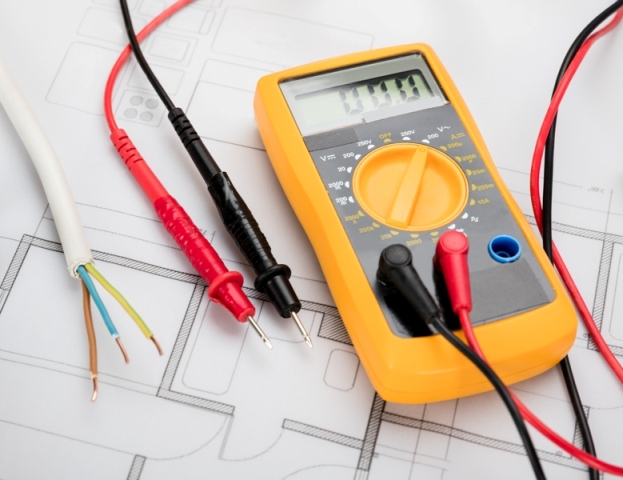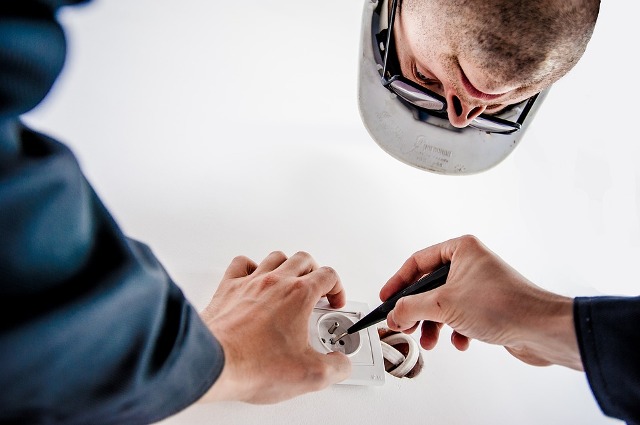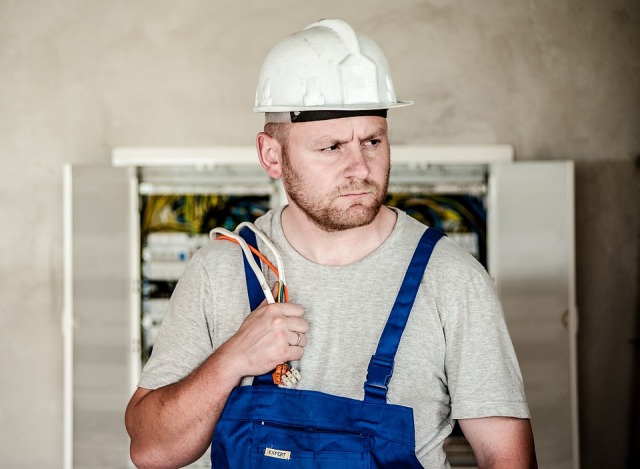Categories: Sharing experience, Electrician at home, About electricians and not only
Number of views: 21399
Comments on the article: 3
Which is better - do the electrical installation yourself or call professional electricians?
In bookstores and on the ruins, there are a huge number of books and brochures with titles such as “Wiring in 5 minutes”, “Your own electrician”, “100 tips for the home master - installation of wiring” and other similar publications.
Looking at this “splendor”, you might think that wiring is a very simple task that you can really learn in five minutes. But this is not so.
This will be confirmed to you by any professional for whom the installation of sockets, automatic machines, electrical panels, etc. this is not a “hobby”, as the authors of books represent reality, but a profession.
Not only does wiring require a mass of specific knowledge and skills, it also requires compliance with safety regulations. For this reason, following some of the tips from the compilers of Home Master collections is simply dangerous.

Any work with electric current is classified as dangerous to human life if the voltage in the line is more than a hundred volts. Therefore, it is only natural that only persons who have undergone special instruction and training and possess debugged skills in both electrical installation and first aid in case of electric shock are allowed to do such work.
If we say the “letter of the law”, then only people with a third qualification group for electrical safety meet these requirements.
And what can lie in wait for a layman?
When replacing the wiring, there is a risk of electric shock and fire if measures are not taken to properly disconnect the wiring network. In addition, there is the possibility of improper connection of wires, in which a short circuit occurs. Note that electric shock in this case can be fatal, especially if you do not use protective equipment.

When replacing circuit breakers (circuit breakers), the danger increases even more. If, during wiring, most “home electricians” still have the quick wits to turn off the input circuit breaker, then when changing it, there is nothing to turn off at first glance. Therefore, there remains only hope "at random."
At the same time, hope, again, was not supported by anything. But the cost of the error here is high - a short circuit can easily lead to the disconnection of an entire section of the circuit. It can be a porch, a house, a quarter - as "lucky." Not to mention the danger to life, which is not just real here, but quite palpable - almost everyone will remember a similar case.
Even such an operation, primitive at first glance, as replacing a socket can end in disrepair. Firstly, in most houses, the wiring is made of aluminum wire. This means that if the house is more than ten years old, then the probability of breaking the wire at its entrance to the wall is very high. And such a mistake is very difficult to fix. Secondly, not all sockets are “two holes and two wires”, where it is difficult to make a mistake during installation.
After all, there are three-phase sockets for electric stoves, and there are also those combined with a switch. In this case, without the necessary knowledge, it is very easy to mix up a couple of wires. The result is a short circuit with all the ensuing consequences. It’s lucky if these consequences are only for the building, and not for the “home electrician”.
Particularly desperate are taken even for the independent installation of electrical panels and meters.

To speak here about the dangers of such work is to say nothing. They GUARANTEED end disastrously for lay people. True, sometimes not always right away.If you are not hit by current when connecting the meter or electrical panel to the supply line, and if there is no short circuit, then you will be very lucky. True, even if everything works, then this is not for long.
Installation of electrical panels requires too much - starting from the project, ending with the calculation and implementation of grounding. It is simply impossible for a layman to take into account all the nuances. If we talk about the meter, then it will work exactly before the representatives of the energy service come - because its sealing requires a license from the organization conducting the installation. And an unsealed meter is a direct violation of the power supply agreement. It turns out that the call of an electrician always pays for itself, saving you from unnecessary risk and low-quality power supply.
See also at bgv.electricianexp.com
:
